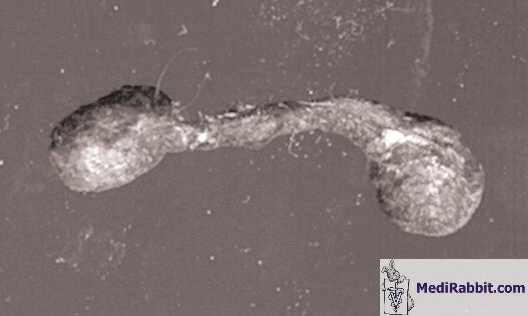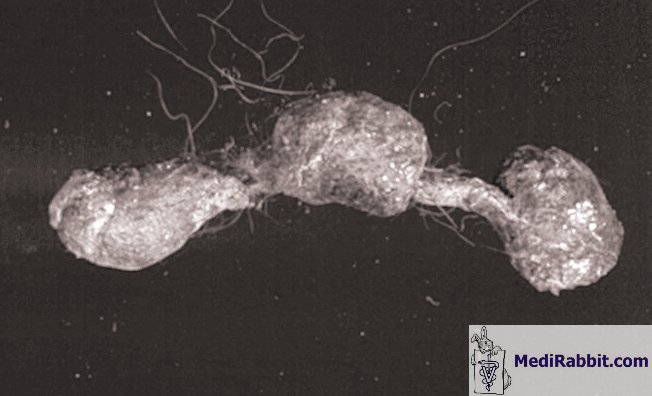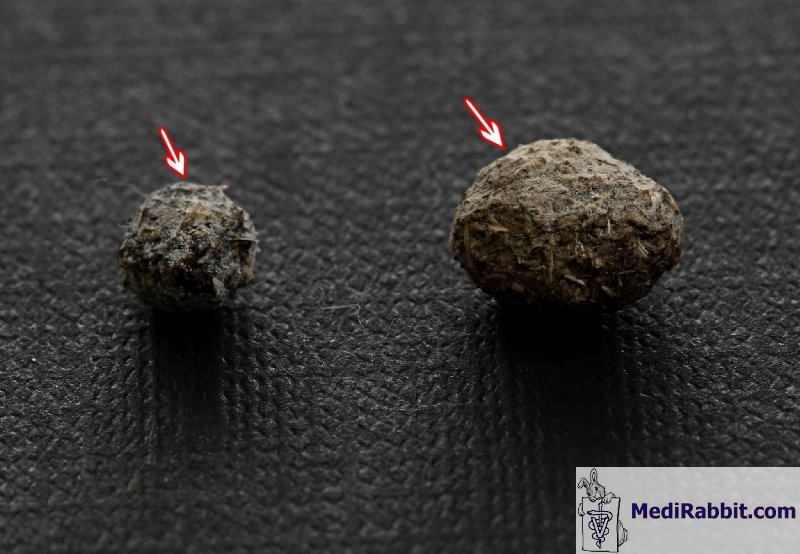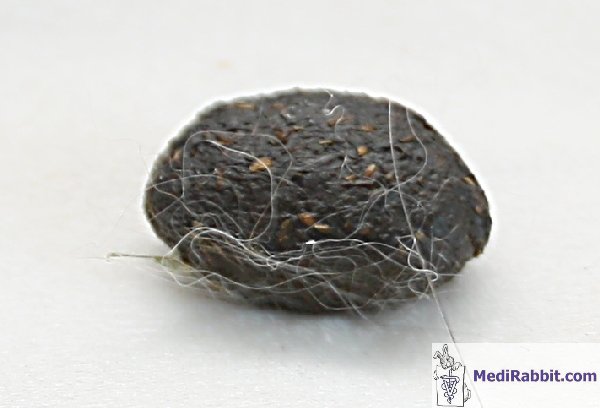Normal
and abnormal fecal and cecal feces of rabbits
Esther van Praag, Ph.D.
MediRabbit.com is funded solely by the
generosity of donors.
Every donation, no matter what
the size, is appreciated and will aid in the continuing research of medical care
and health of rabbits.
Thank you
|
|
Healthy rabbits produce two types of
feces: ·
Hard round feces of intestinal origin are rich in
small pieces of hay and other debris. They can be seen around or in the
litter-box.
·
Smelly soft grape-like cecotropes
(also called soft cecal pellets) coated
with a thin layer of mucus that are produced in the cecum. They are
rich in minerals, vitamins, proteins, water, and bacteria. To avoid
the loss of these precious nutrients, the rabbit will re-ingest them
as soon as they pass the anus, without chewing, to avoid breaking
the outer coats of the grains. This enables the continuation of fermentation
and the survival of bacteria inside the grains while passing the acid
hostile environment of the stomach.
Healthy
hard feces and cecotropes
Gastro-intestinal
trouble
Any
disturbance of the intestinal environment can lead to a change of feces
shape: ·
small and dry when the rabbit is dehydrated or sick,
or when there is lack of lack of fiber in the diet; ·
big and elongated.
Ingestion of fur or carpet
After
stasis
After suffering (ileus), the fecal
production of the rabbit will be irregular and hard feces are coated with
mucus.
Sediment
deposit
The urine of rabbits is naturally rich in
calcium and crystal sediments (struvite, calcium
carbonate, more rarely oxalate). When a rabbit urinates on top of its hard
feces, a white deposit can be observed.
Parasites
An infestation by parasites like worms (nematodes, tapeworms or trematodes) in the gastro-intestinal
tract is characterized by the presence of mucus threads among the feces,
rarely diarrhea. The presence of live pinworms or tapeworms can be observed
in freshly excreted hard feces, when infestation is severe. This can be
accompanied by stasis, cecal impaction, severe
pain, and attempts to treat the disorder as GI stasis often fails. Depending on the stage of the parasitic
worm (growing phase or population overgrowth), fecal flotation tests can fail
to reveal the presence of gastro-intestinal parasites.
Effect of
medication
Administration
of drugs can affect the fecal production. Several antibiotics will cause
bacterial dysbiosis and severe diarrhea when given
orally. See: Antibiotics endangering
the life of rabbits
The
shape of feces can change too, e.g., the administration of oral enrofloxacin
can lead to the production of “excellent quality” large hard fecals, while long term injected
penicillin hard feces may cause the formation of small and dry droppings. Cecal feces are frequently ignored when a
rabbit is sick and/or gets medication. Their quality or smell has changed and
the rabbit will abandon them, rather than re-ingest.
Thank you to Viktoria S.
(Finland) and Sandy Minshull (Canada) for their help with illustrations |
||||||||||||||||||||||||||||
e-mail: info@medirabbit.com























